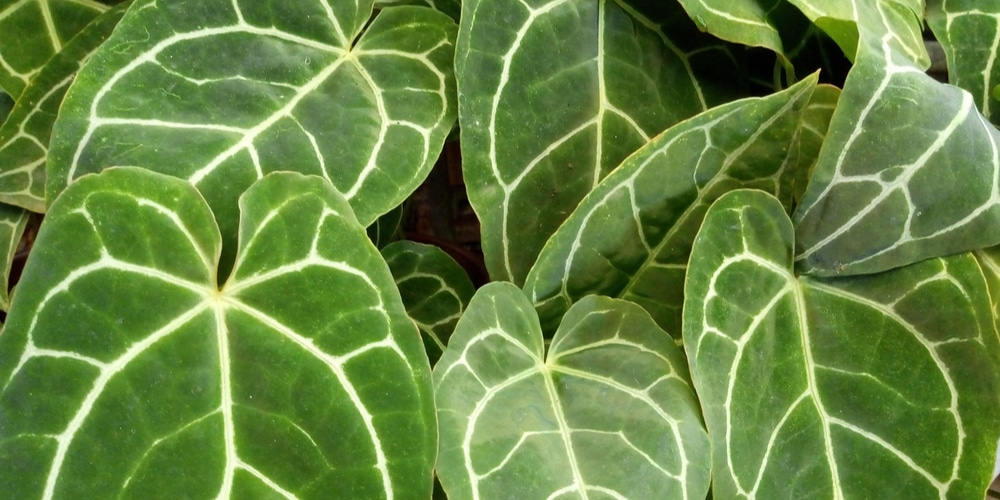Plants are stunning additions to your property that create beautiful decorations and help with exchanging CO2 and oxygen. If you own a pet and love having plants around, you may know how hard it can be to keep your dogs or cats from chewing on flowers, greens, and roots. And this alone might already cause you some headaches. However, the issues don’t stop here. Indeed, there is more you need to be aware of about the co-existence of pets and plants.

Despite the hassle of having to clean the mess your cat may make when trying to chew on your plants or the efforts you put into keeping your green decorations alive, you will also have to think about what plants you decide to have at home. While plants and living beings generally co-exist, some are potentially dangerous when ingested. So, as a pet owner, you must know which plants to choose for keeping your pets safe.
If you like tropical plants, you may be familiar with the stunning anthurium. There are many examples, such as Anthurium Magnificum or Anthurium Warocqueanum, However, this lush plant might cause you some trouble if you have cats or dogs. But is an anthurium toxic to cats? You may have heard some contrasting views on this one. If you care about the safety of your cat, you should keep reading our essential guide to finding the truth about this debate. Here, you’ll discover why this plant can be poisonous and what you can do to create a safe environment for your pets.
Anthurium Plants
You may know this tropical plant as a flamingo flower or lily rather than anthurium. However, regardless of how you call it, if you own a pet, you should be able to identify it to eliminate the possible danger it may cause to your cat.
Don’t get us wrong. We love anthuriums. These plants have multiple stems and feature dark green leaves with a leathery feel that are stunning additions to gardens and living rooms. The spike of white or yellow flowers surrounded by a red leaf-like structure makes these ornamental plants striking additions to your house. However, despite their beauty, you may have to ditch the idea of getting an anthurium with cats around.
Is An Anthurium Toxic To Cats?
Yes, anthuriums are poisonous to cats. The calcium oxalate crystals present on the leaves, petals, and pollen can cause severe burning to the throat and mouth of your animals. Not only that, but it can also irritate the gastrointestinal tract.
While these plants are toxic to most animals, cats may particularly suffer from ingesting them due to their sizes. Even the smallest amount of anthurium could have potentially disastrous consequences when a cat eats it. For instance, pollen sticking to a cat’s fur, if licked, could damage your pet’s health. Because cats are so attentive with cleaning, it is highly likely they may (even unintentionally) ingest parts of your anthurium plant.
How To Tell Your Cat Is Intoxicated
Some symptoms of intoxication from ingesting or chewing anthurium include drooling, painful meowing, and vomiting. In drastic situations, your cat might develop breathing issues. Pawing or rubbing face and mouth might be other signals your cate ate anthurium. Indeed, the reaction of calcium oxalate crystals in contact with pets’ saliva causes the tongue to swell and makes it irritating, which in turn damages the oral cavity.
If you suspect your cat ate an anthurium, don’t lose time trying to medicate it yourself. Instead, go immediately to the vet. It is best to wait for a professional to induce vomiting to avoid causing more damage to your pet.
Creating A Safe Environment For Your Pet
Prevention is much better than dealing with a cure for a dangerous situation. While anthuriums are stunning plants that can give more color and add a tropical touch to your house, you may want to think about it twice before getting one if you live with cats.
Is Anthurium Toxic to Cats? Final thoughts
You may be able to move your toxic plant out of reach if you own a dog, but cats like to explore and jump onto shelves and other high places. The best option to avoid problems is to remove plants that might damage your pets.
Instead, choose compatible plants for the safety of your cats (and of your plants).
Related article: Are orchids toxic to cats, dogs or humans?

